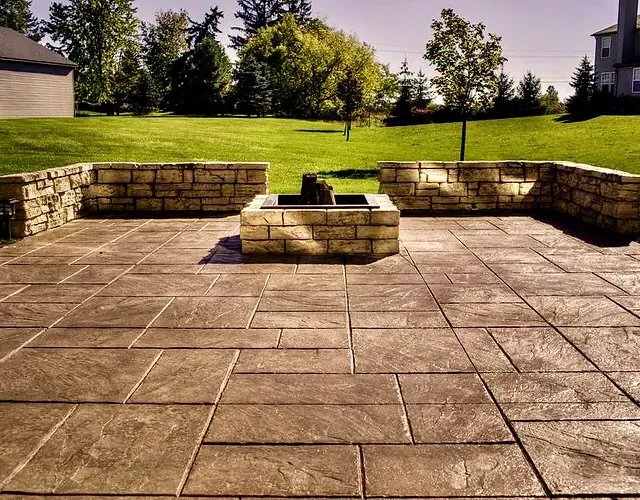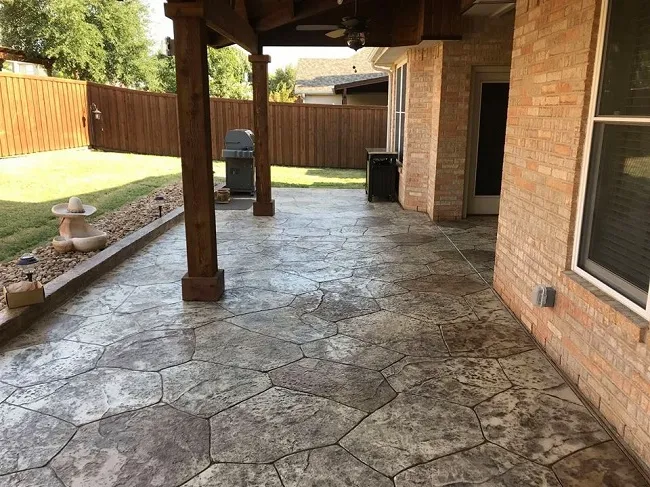Available Now
How to Prevent Mold on your Concrete Driveway
How to Prevent Mold on your Concrete Driveway

To prevent mold on your concrete driveway: clean regularly, ensure good drainage, use a concrete sealer like Siloxa-Tek 8500, let in sunlight by trimming plants, and clean up spills quickly with vinegar and water.
· Mold Prevention Priority: Prioritize preventing mold on your concrete driveway for property longevity and family health.
· Understand Mold Causes: Recognize moisture migration, organic matter, temperature, and rainwater as key contributors to mold growth.
· Sealers for Protection: Invest in concrete sealers like Siloxa-Tek 8500 for effective mold prevention.
· Regular Cleaning Vital: Ensure regular cleaning, eliminate standing water, and promptly address spills to remove mold's food source.
· DIY and Professional Solutions: Explore DIY remedies and professional sealing services for lasting mold control.
Introduction
Concrete driveways are a staple in many homes, providing a durable and reliable surface for vehicles and foot traffic. However, one common issue that can plague concrete surfaces is the growth of mold and mildew. Not only are these unwelcome guests unsightly, but they can also cause significant damage over time. In this comprehensive guide, we'll delve into the importance of preventing mold on your concrete driveway, understanding the causes behind mold growth, and explore effective methods to keep your driveway mold-free. If you're considering installing a new driveway,
JM Ballarat Concreters offers a range of services to ensure longevity and durability.
The Importance of Preventing Mold on Concrete Driveways
When we talk about maintaining our homes, we often overlook the importance of our driveways. A mold-infested concrete driveway is not just an eyesore but can also be a safety hazard. Mold and mildew growth can make the surface slippery, increasing the risk of accidents. Moreover, mold can penetrate the pores of concrete, leading to cracks and weakening the structure over time. For those who prioritize their home's exterior appearance and safety,
JM Ballarat Concreters provides a wealth of information and services to ensure your driveway remains in top condition.
In addition to the physical damage, mold can also trigger allergies and respiratory problems for you and your family. The spores released by mold can find their way into your home, affecting indoor air quality. Preventing mold growth on your concrete driveway is not just about aesthetics; it's about preserving the integrity of your property and the health of your loved ones.
Understanding the Causes of Mold on Concrete

Before we dive into the prevention methods, it's essential to understand how mold forms on concrete surfaces. Mold requires three main factors to thrive: moisture, organic matter, and a suitable environment. Concrete, although seemingly solid, is porous and can absorb moisture. This moisture, coupled with organic materials like leaves, dirt, or oil spills, creates a perfect breeding ground for mold. For those keen on understanding the intricacies of concrete care and maintenance, this
detailed guide can be invaluable.
The Role of Moisture Migration
One surprising factor contributing to mold growth on concrete is moisture migration. Concrete can absorb moisture from the ground or surrounding environment, and this trapped moisture provides an ideal breeding ground for mold. Understanding the migration of moisture into concrete is crucial in preventing mold issues.
Algae and Pollen: Additional Sources of Nourishment
Mold on concrete doesn't solely rely on the concrete itself for nourishment. It can feed on various particles trapped within the concrete, including algae, pollen, dust, and dirt, which further facilitate its growth. This highlights the importance of keeping concrete surfaces clean to reduce the availability of these organic materials.
Temperature Impact: The Influence of Weather
Mold growth can be influenced by temperature changes. Warmer temperatures encourage the proliferation of mold, making regions with consistently high temperatures more prone to mold issues on concrete surfaces. Understanding how temperature impacts mold growth can help homeowners in different climates take appropriate preventive measures.
Rainwater and Porosity: Moisture Retention
While concrete is a sturdy material, its porous nature allows it to absorb rainwater. Mold can thrive on the moisture retained within the concrete, especially in areas with frequent rainfall or high humidity. Effective prevention should consider the role of rainwater and address drainage issues.
Indoor Mold Risk: Beyond the Driveway
Mold growth on concrete is not limited to outdoor surfaces. In indoor environments like basements, moisture accumulation, lack of ventilation, and poor insulation can lead to mold problems on concrete walls and floors. Addressing indoor mold risk is equally crucial for a healthy living environment.
| Common Causes of Mold on Concrete | |
|---|---|
| Cause | Description |
| Moisture Migration | Absorption of moisture from the environment |
| Organic Matter | Mold feeds on algae, pollen, dust, and dirt in concrete |
| Temperature Impact | Mold grows more in warmer climates |
| Rainwater and Porosity | Concrete's porous nature retains rainwater |
The Role of Concrete Sealers
Concrete sealers play a pivotal role in preventing mold growth on your driveway. These products create a protective barrier on the surface, repelling moisture and inhibiting the growth of mold and mildew. Let's take a closer look at how concrete sealers work and the types available:
How Concrete Sealers Create a Protective Barrier
Concrete sealers work by penetrating the porous surface of the concrete. Once applied, they chemically react with the concrete to form a waterproof barrier. This barrier prevents water from seeping into the concrete, which is a significant factor in mold growth. By keeping moisture out, sealers make the driveway less hospitable for mold and mildew. For those wondering about the drying time of a freshly poured concrete driveway, this
article provides insights.
Sealing Frequency: While sealing a driveway can enhance its lifespan, some sealants require more frequent reapplication than others. Long-term costs can be affected by the need for periodic resealing to maintain protection and appearance. For those wondering about the frequency of sealing a concrete driveway, this guide offers valuable insights.
Types of Concrete Sealers
There are various types of concrete sealers available in the market, each with its unique properties and applications:
· Penetrating Sealers: These sealers are absorbed into the concrete, providing long-lasting protection without altering the appearance of the surface.
· Film-Forming Sealers: Film-forming sealers create a visible protective layer on the surface. While they can enhance the look of your driveway, they may require more frequent reapplication.
· Siloxa-Tek 8500: This particular sealer is renowned for its effectiveness in preventing mold and mildew growth. It falls under the category of penetrating sealers and offers long-term protection for various concrete applications.
| Types of Concrete Sealers | ||
|---|---|---|
| Type of Sealer | Characteristics | Best Use Cases |
| Penetrating Sealers | Absorb into concrete, invisible finish | Driveways, sidewalks |
| Film-Forming Sealers | Create a visible layer, enhance look | Decorative concrete, patios |
| Siloxa-Tek 8500 | Penetrating, invisible, long-lasting | All concrete surfaces |
Benefits of Using Siloxa-Tek 8500
Siloxa-Tek 8500 is a trusted solution for preventing mold on concrete driveways. Here are some key benefits of using this product:
· Long-Lasting: Siloxa-Tek 8500 provides long-lasting protection, reducing the frequency of reapplication.
· Invisible Barrier: It penetrates the concrete, leaving the appearance of the driveway unchanged.
· Reduced Mold and Mildew: By keeping moisture at bay, it significantly reduces the chances of mold and mildew growth.
· Versatile: Siloxa-Tek 8500 is suitable for various concrete surfaces, making it a versatile choice for homeowners.
Effective Methods for Preventing Mold

Now that we understand the role of concrete sealers and the causes of mold growth, let's explore other effective methods to prevent mold growth on your concrete driveway:
Regular Cleaning and Maintenance
One of the simplest yet most effective ways to prevent mold is regular cleaning and maintenance. Here's what you can do:
· Sweeping: Use a broom or leaf blower to remove debris and leaves from your driveway. This not only prevents mold but also maintains its appearance.
· Pressure Washing: For a deeper clean, consider using a pressure washer to remove stubborn stains and dirt.
Using Vinegar as a Natural Mold-Killing Solution
Vinegar is a natural and eco-friendly solution to combat mold. Here's how you can use it:
· Mixing the Solution: Combine equal parts of white vinegar and water in a spray bottle.
· Application: Spray the mixture onto moldy areas and let it sit for about an hour. Then, scrub the surface with a brush and rinse with water.
· Benefits: Vinegar not only kills mold but also helps prevent its return.
Quick Spill and Stain Cleanup
Accidents happen, and spills are inevitable. To prevent mold from thriving on these stains, clean them up promptly. Here's how:
· Oil Stains: Absorb oil spills with kitty litter, then apply a commercial concrete cleaner to remove any residue.
· Food Stains: Use a mixture of dish soap and warm water to clean food stains. Scrub gently with a brush.
Application of Copper-Based Solutions
Copper-based solutions are effective in inhibiting mold growth. You can use copper strips or granules strategically placed on your driveway to deter mold and mildew.
Introduction of Commercial Mold-Killing Detergents
Several commercial mold-killing detergents are available in stores. These products are specifically formulated to target and eliminate mold and mildew. Follow the manufacturer's instructions for the best results.
DIY Solutions for Mold Prevention
For those who prefer a more hands-on approach, creating a DIY mold-killing solution using vinegar is an excellent choice. Here's how to do it:
· Mixing the Solution:
· Combine equal parts of white vinegar and water in a spray bottle.
· Application:
· Spray the mixture onto moldy areas and allow it to sit for about an hour.
· Use a brush to scrub the surface, paying extra attention to mold-prone areas.
· Rinse thoroughly with water.
The benefits of this DIY remedy are twofold. Not only does it effectively eliminate existing mold, but it also acts as a preventive measure to inhibit future growth.
Professional Solutions for Mold Prevention

While DIY methods can be effective, there are situations where professional help is warranted. Consider the following professional solutions:
Recommendations for Professional Concrete Sealing Services
Professional concrete sealing services bring expertise and specialized equipment to the table. They can assess the condition of your driveway, recommend the most suitable sealer, and ensure proper application.
The Advantage of Expert Application of Sealers
Professionals have the knowledge and experience to apply sealers effectively. They ensure even coverage, which is crucial for long-lasting protection against mold and mildew.
How Professionals Can Assess and Address Mold Issues Effectively
If you already have mold issues on your driveway, professionals can assess the extent of the problem and take appropriate steps to remove the mold safely and efficiently. They can also provide guidance on preventing future growth.
Maintaining a Mold-Free Concrete Driveway
Preventing mold growth on your concrete driveway is an ongoing process. Here are some tips for maintaining a mold-free surface:
· Regular Cleaning Practices: Continue to sweep or use a leaf blower to keep your driveway clear of debris and leaves. The more consistently you do this, the less likely mold will find a home.
· Preventing Standing Water: After rain or watering your driveway, ensure proper drainage. Check for areas where water tends to pool and address them promptly.
· Pruning Trees and Bushes: Trim trees and bushes to allow more sunlight to reach your driveway. Sunlight helps deter mold growth in shaded areas.
Conclusion
In conclusion, preventing mold on your concrete driveway is not just about aesthetics; it's about safeguarding your property and the well-being of your family. By understanding the causes of mold, using concrete sealers like Siloxa-Tek 8500, and implementing effective preventive methods, you can enjoy a clean and mold-free driveway for years to come.
Don't wait until mold becomes a problem. Take proactive measures to protect your concrete driveway, and you'll reap the long-lasting benefits of a mold-free surface.
Additional Resources and References
In crafting this comprehensive guide on "How to Prevent Mold on your Concrete Driveway," we've relied on a wealth of trusted sources and expert insights to provide you with accurate and valuable information. Explore the resources below to delve deeper into the subject.
https://kta.com/kta-university/importance-concrete-sealers/#:~:text=Applied
https://westyorkpaving.com/dealing-preventing-mold-concrete/
Frequently Asked Questions (FAQs)
How does mold form on concrete driveways?
Mold forms on concrete driveways due to a combination of factors, including moisture, organic matter, and a suitable environment. Rainwater, debris, and shaded areas can contribute to mold growth on concrete surfaces. Additionally, moisture migration from the ground can also play a role.
Can vinegar effectively kill mold on concrete surfaces?
Yes, vinegar is an effective and natural mold-killing solution. When mixed with water and applied to moldy areas, vinegar can kill mold and help prevent its return. This method is eco-friendly and safe for use on concrete surfaces.
What are the dangers of mold on concrete, and is it harmful?
Mold on concrete driveways can be harmful as it can make the surface slippery, leading to accidents. Additionally, mold spores can affect indoor air quality and trigger allergies and respiratory problems. It's essential to address mold issues promptly to avoid these potential health hazards.
Are there any eco-friendly concrete sealers to prevent mold growth?
Yes, there are eco-friendly concrete sealers available in the market. Penetrating sealers like Siloxa-Tek 8500 are considered environmentally friendly and effective in preventing mold growth. These sealers create a protective barrier without harming the environment.
How often should I apply a concrete sealer to maintain a mold-free driveway?
The frequency of reapplying a concrete sealer depends on factors like the type of sealer used and the climate. Generally, penetrating sealers may require reapplication every few years, while film-forming sealers may need more frequent maintenance. Follow the manufacturer's recommendations for the best results. Regular inspections can help determine when reapplication is needed.
GET IN TOUCH
Need more information? Speak to one of our experts and get personalised advice on your project to bring your vision to life. Contact us today to schedule your consultation or request a free consultation.
Contact Us
Thank you for submitting a quote request. We'll get back to you shortly!
Oops, there was an error in sending your message.
Please try again later.
YOU MIGHT ALSO LIKE...
YOU MIGHT ALSO LIKE...



Call Now For a Fast & Free Quote
We can be contacted 24/7 via email or telephone
Location
City Council of Ballarat and Surrounding Areas
Call
Ballarat's Best Concreters since 2010.
This is a referral website, please visit our Privacy Policy for more information.
Navigation
Services
Working hours
- Mon - Sun
- -
Give us a call and if we cannot get to you straight away, one of our specialist will call you back shortly.
All Rights Reserved | JM Ballarat Concreters
New Paragraph


